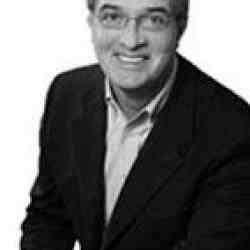
Artificial Intelligence, Health, and the Future of Human Agency
Dr. Stephen Friend, a globally acclaimed serial entrepreneur and biomedical researcher, talks about how the future of health could be a radical new model of health, augmented by artificial intelligence (AI) machines that begin to replace replace a doctor’s decision making, but counterbalanced by a community of support that promotes each patient’s power to make their own choices. To ensure people are in charge of their own health conditions in this new era, critical health support must increasingly come from the patient’s community - from family, neighbors, nurses, social workers - who provide the interpersonal support needed to help a patient with their choices. “At the same time there is an evolving role for the clinician, but it will be as an integrator to help improve the intelligence of the master system and to help people nourish themselves at times of metamorphosis,” Friend said. “Ultimately, though, we will need a new architecture and a new economic structure. I just don’t see that coming from the commercial interests currently working in AI and health. “I don’t think healthcare companies are going to look out for the wellbeing of an individual, and they are not likely to jump-start the revolution we need to provide each individual the knowledge and support to better self-navigate through times of metamorphosis. “Those who are in the pathbreaking position are nonprofits, social entrepreneurs, universities and patient advocacy groups. They can model a new way that advocates for the good of the individual and their agency. Ultimately, our new model will have economic benefits for society as a whole because we will dramatically lower our health care costs. “The fun is that AI and wearables are poised to enable us to crack open the sacred roles in the field of medicine, and to give agency back to the individual. But because our new model of health care will not incur the same costs, hence not the same profits, there will be less interest from companies at least at the beginning of this fundamental transition in health care. Advocacy and leadership will come from the nonprofit side.”
